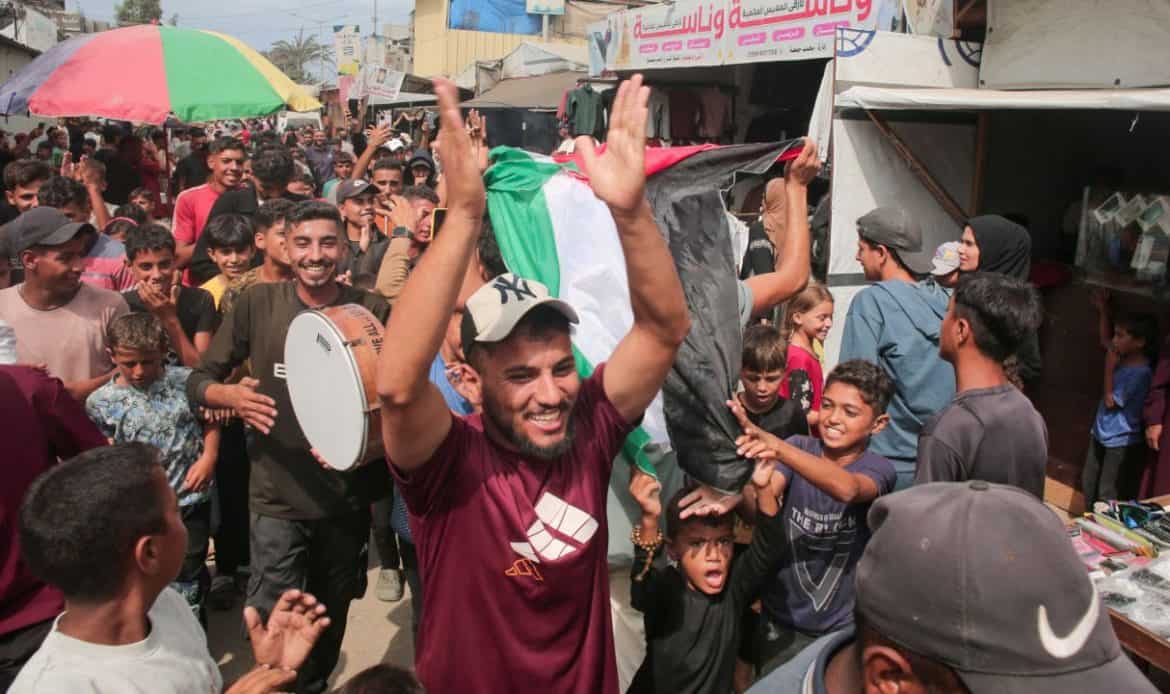
Femena welcomes the announcement of the long-overdue ceasefire between Hamas and the state of Israel, which will hopefully bring Palestinians in Gaza a much-needed reprieve from two years of brutal bombardment and violence that has resulted in at least 69,000 confirmed deaths, the nearly total destruction of the Gaza Strip’s infrastructure, and the displacement of close to 2 million Palestinians – multiple times.
Femena notes, with great alarm, that even as the ceasefire was announced, Israel continued its attacks on Gaza, as Palestinians celebrated the ceasefire’s announcement. We call on all states that participated in the negotiations – namely the United States, Qatar, Egypt, and Turkey – to denounce Israel’s continued attacks and urge the Israeli government to abide by its commitments to end hostilities.
We understand that the first phase of the ceasefire involves Israel’s withdrawal from parts of the Gaza Strip, Hamas’s release of the remaining hostages in exchange for the release of Palestinian prisoners, and the entry of humanitarian aid into the ravaged Gaza Strip. These initial steps are essential, considering that Israel’s near-total blockade on the entry of all aid into Gaza, including food, fuel, and medicine, had created conditions of famine that caused hundreds of deaths by starvation.
Femena hopes that the implementation of the final phases of the agreement will result in a complete and total withdrawal of Israeli troops from the Gaza Strip, which would also allow Palestinians wishing to return to their homes to do so.
Femena emphasizes that the ceasefire should mark the beginning, not the end, of a process of resumed negotiations that will address long-standing issues of injustice against the Palestinians.
There can be no lasting peace without justice, which must begin with accountability. Accordingly, there must be investigations – by impartial and independent bodies – into allegations of war crimes and violations of international law – and an end to impunity. In this spirit, we hope that international observers and media will finally be granted access to the Gaza Strip. Furthermore, a comprehensive justice and accountability is critical, and must encompass trials, reparations, and other forms of redress for Palestinians who have survived the genocide and its brutal long-lasting impacts.
The 20-point, long-term peace plan for Gaza, unveiled by President Trump and Prime Minister Netanyahu at the White House, raises several concerns. Most troubling is the fact that the plan was adopted with seemingly no consultation with Palestinians and leaves the governing of Gaza in the hands of an international body, once again robbing Palestinians of the right to self-determination, a fundamental right to which they, like all peoples, are entitled and of which they have been deprived for decades.
The plan is highly asymmetrical in the demands it makes of Palestinians, without corresponding requirements from Israel. Significantly, the plan is silent on the West Bank, which has been the site of ongoing raids by the Israeli military, ongoing confiscation of land, and ongoing settler violence. Although President Trump has made verbal assurances that he would not allow Israel to annex the West Bank, the final deal is silent on this. It is important to recall that the world’s highest legal authority, the International Court of Justice, ruled in July of 2024 that Israel’s occupation of the West Bank and its geographic, demographic, and political practices and policies there are illegal under international law.
In sum, the announcement of a ceasefire and what will hopefully be an end to Israeli bombardment of the Gaza Strip is very much overdue and welcome. However, Femena reminds the negotiating parties and the international community that for there to be true peace and security for Palestinians and Israelis alike, there must be an end to Israel’s apartheid and occupation policies that, for decades, have undermined the human rights of Palestinians and their ability to live in freedom, equality, and dignity. The ceasefire agreement came about in large part due to the global mobilization for Gaza, and this momentum needs to continue even if the bombardment subsides, in order to ensure that Palestinians receive the justice and accountability they are owed.


